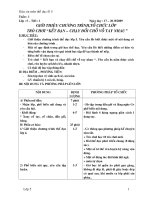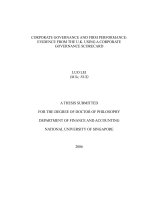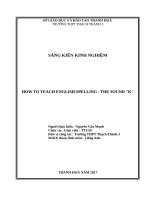the novel k
Bạn đang xem bản rút gọn của tài liệu. Xem và tải ngay bản đầy đủ của tài liệu tại đây (1.01 MB, 253 trang )
TheProjectGutenbergEBookofK,byMaryRobertsRinehart
ThiseBookisfortheuseofanyoneanywhereatnocostandwith
almostnorestrictionswhatsoever.Youmaycopyit,giveitawayor
re-useitunderthetermsoftheProjectGutenbergLicenseincluded
withthiseBookoronlineatwww.gutenberg.org
Title:K
Author:MaryRobertsRinehart
ReleaseDate:June16,2009[EBook#9931]
LastUpdated:April27,2018
Language:English
***STARTOFTHISPROJECTGUTENBERGEBOOKK***
ProducedbyDavidBrannan,andDavidWidger
ByMaryRobertsRinehart
CONTENTS
CHAPTERI
CHAPTERII
CHAPTERIII
CHAPTERIV
CHAPTERV
CHAPTERVI
CHAPTERVII
CHAPTERVIII
CHAPTERIX
CHAPTERX
CHAPTERXI
CHAPTERXII
CHAPTERXIII
CHAPTERXIV
CHAPTERXV
CHAPTERXVI
CHAPTERXVII
CHAPTERXVIII
CHAPTERXIX
CHAPTERXX
CHAPTERXXI
CHAPTERXXII
CHAPTERXXIII
CHAPTERXXIV
CHAPTERXXV
CHAPTERXXVI
CHAPTERXXVII
CHAPTERXXVIII
CHAPTERXXIX
CHAPTERXXX
CHAPTERI
TheStreetstretchedawaynorthandsouthintwolinesofancienthousesthat
seemedtomeetinthedistance.Themanfounditinfinitelyinviting.Ithadthe
well-wornlookofanoldcoat,shabbybutcomfortable.Thethoughtofcoming
theretolivepleasedhim.Surelyherewouldbepeace—longeveningsinwhich
toread,quietnightsinwhichtosleepandforget.Itwasanimpressionofhome,
really,thatitgave.Themandidnotknowthat,orcareparticularly.Hehadbeen
wandering about a long time—not in years, for he was less than thirty. But it
seemedaverylongtime.
Atthelittlehousenoonehadseemedtothinkaboutreferences.Hecouldhave
givenoneortwo,ofasort.Hehadgonetoconsiderabletroubletogetthem;and
now,nottohavethemaskedfor—
TherewasahouseacrossandalittlewaydowntheStreet,withacardinthe
window that said: “Meals, twenty-five cents.” Evidently the midday meal was
over; men who looked like clerks and small shopkeepers were hurrying away.
TheNottinghamcurtainswerepinnedback,andjustinsidethewindowathroaty
barytonewassinging:
“Homeisthehunter,homefromthehill:
Andthesailor,homefromsea.”
AcrosstheStreet,themansmiledgrimly—Home!
For perhaps an hour Joe Drummond had been wandering up and down the
Street.Hisstrawhatwassetonthebackofhishead,fortheeveningwaswarm;
his slender shoulders, squared and resolute at eight, by nine had taken on a
disconsolatedroop.Underastreetlampheconsultedhiswatch,butevenwithout
thatheknewwhatthehourwas.Prayermeetingatthecornerchurchwasover;
boysofhisownagewererangingthemselvesalongthecurb,waitingforthegirl
ofthemoment.Whenshecame,ayouthwouldappearmiraculouslybesideher,
andtheworld-oldpairingoffwouldhavetakenplace.
TheStreetemptied.Theboywipedthewarmbandofhishatandslappediton
his head again. She was always treating him like this—keeping him hanging
about, and then coming out, perfectly calm and certain that he would still be
waiting.ByGeorge,he'dfoolher,foronce:he'dgoaway,andletherworry.She
WOULDworry.Shehatedtohurtanyone.Ah!
Across the Street, under an old ailanthus tree, was the house he watched, a
small brick, with shallow wooden steps and—curious architecture of Middle
Westsixties—awoodencellardoorbesidethesteps.
In some curious way it preserved an air of distinction among its more
pretentiousneighbors,muchasaveryoldladymaynowandthenlendtonetoa
smart gathering. On either side of it, the taller houses had an appearance of
protectionratherthanofpatronage.Itwasamatterofself-respect,perhaps.No
windows on the Street were so spotlessly curtained, no doormat so accurately
placed, no “yard” in the rear so tidy with morning-glory vines over the
whitewashedfence.
The June moon had risen, sending broken shafts of white light through the
ailanthus to the house door. When the girl came at last, she stepped out into a
worldofsoftlightsandwaveringshadows,fragrantwithtreeblossomsnotyet
overpowering, hushed of its daylight sounds of playing children and moving
traffic.
Thehousehadbeenwarm.Herbrownhairlaymoistonherforehead,herthin
whitedresswasturnedinatthethroat.Shestoodonthesteps,thedoorclosed
behind her, and threw out her arms in a swift gesture to the cool air. The
moonlightclothedheraswithagarment.FromacrosstheStreettheboywatched
herwithadoring,humbleeyes.Allhiscouragewasforthosehourswhenhewas
notwithher.
“Hello,Joe.”
“Hello,Sidney.”
He crossed over, emerging out of the shadows into her enveloping radiance.
Hisardentyoungeyesworshipedherashestoodonthepavement.
“I'mlate.Iwastakingoutbastingsformother.”
“Oh,that'sallright.”
Sidneysatdownonthedoorstep,andtheboydroppedatherfeet.
“I thought of going to prayer meeting, but mother was tired. Was Christine
there?”
“Yes;PalmerHowetookherhome.”
Hewasathiseasenow.Hehaddiscardedhishat,andlaybackonhiselbows,
ostensiblytolookatthemoon.Actuallyhisbrowneyesrestedonthefaceofthe
girlabovehim.Hewasveryhappy.“He'scrazyaboutChris.She'sgood-looking,
butshe'snotmysort.”
“Pray,whatISyoursort?”
“You.”
Shelaughedsoftly.“You'reagoose,Joe!”
Shesettledherselfmorecomfortablyonthedoorstepanddrewalongbreath.
“HowtiredIam!Oh—Ihaven'ttoldyou.We'vetakenaroomer!”
“Awhat?”
“Aroomer.”Shewashalfapologetic.TheStreetdidnotapproveofroomers.
“Itwillhelpwiththerent.It'smydoing,really.Motherisscandalized.”
“Awoman?”
“Aman.”
“Whatsortofman?”
“HowdoIknow?Heiscomingtonight.I'lltellyouinaweek.”
Joewassittingboltuprightnow,alittlewhite.
“Isheyoung?”
“He'sagoodbitolderthanyou,butthat'snotsayinghe'sold.”
Joewastwenty-one,andsensitiveofhisyouth.
“He'llbecrazyaboutyouintwodays.”
Shebrokeintodelightedlaughter.
“I'llnotfallinlovewithhim—youcanbecertainofthat.Heistallandvery
solemn.Hishairisquitegrayoverhisears.”
Joecheered.
“What'shisname?”
“K.LeMoyne.”
“K.?”
“That'swhathesaid.”
Interestintheroomerdiedaway.Theboyfellintotheecstasyofcontentthat
always came with Sidney's presence. His inarticulate young soul was swelling
withthoughtsthathedidnotknowhowtoputintowords.Itwaseasyenoughto
plan conversations with Sidney when he was away from her. But, at her feet,
withhersoftskirtstouchinghimasshemoved,hereagerfaceturnedtohim,he
wasmiserablyspeechless.
Unexpectedly,Sidneyyawned.Hewasoutraged.
“Ifyou'resleepy—”
“Don't be silly. I love having you. I sat up late last night, reading. I wonder
whatyouthinkofthis:oneofthecharactersinthebookIwasreadingsaysthat
everymanwho—whocaresforawomanleaveshismarkonher!Isupposeshe
triestobecomewhathethinkssheis,forthetimeanyhow,andisneverjusther
oldselfagain.”
Shesaid“caresfor”insteadof“loves.”Itisoneofthetraditionsofyouthto
avoidthedirectissueinlife'sgreatestgame.Perhaps“love”islefttothefervent
vocabulary of the lover. Certainly, as if treading on dangerous ground, Sidney
avoidedit.
“Everyman!Howmanymenaresupposedtocareforawoman,anyhow?”
“Well,there'stheboywho—likesherwhenthey'rebothyoung.”
Abitofinnocentmischiefthis,butJoestraightened.
“Then they both outgrow that foolishness. After that there are usually two
rivals,andshemarriesoneofthem—that'sthree.And—”
“Whydotheyalwaysoutgrowthatfoolishness?”Hisvoicewasunsteady.
“Oh,Idon'tknow.One'sideaschange.Anyhow,I'monlytellingyouwhatthe
booksaid.”
“It'sasillybook.”
“Idon'tbelieveit'strue,”sheconfessed.“WhenIgotstartedIjustreadon.I
wascurious.”
Moreeagerthancurious,hadsheonlyknown.Shewasfairlyvibrantwiththe
zest of living. Sitting on the steps of the little brick house, her busy mind was
carrying her on to where, beyond the Street, with its dingy lamps and
blossoming ailanthus, lay the world that was some day to lie to her hand. Not
ambitioncalledher,butlife.
The boy was different. Where her future lay visualized before her, heroic
deeds, great ambitions, wide charity, he planned years with her, selfish,
contented years. As different as smug, satisfied summer from visionary,
palpitatingspring,hewasforher—butshewasforalltheworld.
Byshiftinghispositionhislipscameclosetoherbareyoungarm.Ittempted
him.
“Don't read that nonsense,” he said, his eyes on the arm. “And—I'll never
outgrowmyfoolishnessaboutyou,Sidney.”
Then,becausehecouldnothelpit,hebentoverandkissedherarm.
Shewasjusteighteen,andJoe'sdevotionwasverypleasant.Shethrilledtothe
touchofhislipsonherflesh;butshedrewherarmaway.
“Please—Idon'tlikethatsortofthing.”
“Whynot?”Hisvoicewashusky.
“Itisn'tright.Besides,theneighborsarealwayslookingoutthewindows.”
Thedropfromherhighstandardofrightandwrongtotheneighbors'curiosity
appealedsuddenlytohersenseofhumor.Shethrewbackherheadandlaughed.
Hejoinedher,afteranuncomfortablemoment.Buthewasverymuchinearnest.
Hesat,bentforward,turninghisnewstrawhatinhishands.
“IguessyouknowhowIfeel.Someofthefellowshavecrushesongirlsand
getoverthem.I'mnotlikethat.SincethefirstdayIsawyouI'veneverlookedat
anothergirl.Bookscansaywhattheylike:therearepeoplelikethat,andI'mone
ofthem.”
Therewasatouchofdoggedpathosinhisvoice.Hewasthatsort,andSidney
knew it. Fidelity and tenderness—those would be hers if she married him. He
wouldalwaysbetherewhenshewantedhim,lookingatherwithlovingeyes,a
triflewistfulsometimesbecauseofhislackofthoseveryqualitieshesoadmired
in her—her wit, her resourcefulness, her humor. But he would be there, not
strong,perhaps,butalwaysloyal.
“Ithought,perhaps,”saidJoe,growingredandwhite,andtalkingtothehat,
“thatsomeday,whenwe'reolder,you—youmightbewillingtomarryme,Sid.
I'dbeawfullygoodtoyou.”
Ithurt herto sayno.Indeed,she couldnotbringherself tosayit. Inallher
shortlifeshehadneverwillfullyinflictedawound.Andbecauseshewasyoung,
anddidnotrealizethatthereisashortcruelty,likethesurgeon's,thatismercyin
theend,shetemporized.
“Thereissuchalotoftimebeforeweneedthinkofsuchthings!Can'twejust
goonthewayweare?”
“I'mnotveryhappythewayweare.”
“Why,Joe!”
“Well,I'mnot”—doggedly.“You'reprettyandattractive.WhenIseeafellow
staringatyou,andI'dliketosmashhisfaceforhim,Ihaven'ttheright.”
“And a precious good thing for you that you haven't!” cried Sidney, rather
shocked.
Therewassilenceforamomentbetweenthem.Sidney,totellthetruth,was
obsessed by a vision of Joe, young and hot-eyed, being haled to the police
station by virtue of his betrothal responsibilities. The boy was vacillating
between relief at having spoken and a heaviness of spirit that came from
Sidney'slackofenthusiasticresponse.
“Well,whatdoyouthinkaboutit?”
“Ifyouareaskingmetogiveyoupermissiontowaylayandassaulteveryman
whodarestolookatme—”
“Iguessthisisallajoketoyou.”
Sheleanedoverandputatenderhandonhisarm.
“Idon'twanttohurtyou;but,Joe,Idon'twanttobeengagedyet.Idon'twant
tothinkaboutmarrying.There'ssuchalottodointheworldfirst.There'ssucha
lottoseeandbe.”
“Where?”hedemandedbitterly.“HereonthisStreet?Doyouwantmoretime
topullbastingsforyourmother?OrtoslaveforyourAuntHarriet?Ortorunup
anddownstairs,carryingtowelstoroomers?Marrymeandletmetakecareof
you.”
Once again her dangerous sense of humor threatened her. He looked so
boyish,sittingtherewiththemoonlightonhisbrighthair,soinadequatetocarry
out his magnificent offer. Two or three of the star blossoms from the tree had
fallenallhishead.Sheliftedthemcarefullyaway.
“Let me take care of myself for a while. I've never lived my own life. You
knowwhatImean.I'mnotunhappy;butIwanttodosomething.Andsomeday
Ishall,—notanythingbig;Iknow.Ican'tdothat,—butsomethinguseful.Then,
afteryearsandyears,ifyoustillwantme,I'llcomebacktoyou.”
“Howsoon?”
“HowcanIknowthatnow?Butitwillbealongtime.”
He drew a long breath and got up. All the joy had gone out of the summer
night for him, poor lad. He glanced down the Street, where Palmer Howe had
gone home happily with Sidney's friend Christine. Palmer would always know
howhestoodwithChristine.Shewouldnevertalkaboutdoingthings,orbeing
things.EithershewouldmarryPalmerorshewouldnot.ButSidneywasnotlike
that.Afellowdidnotevencaresshereasily.Whenhehadonlykissedherarm—
Hetrembledalittleatthememory.
“Ishallalwayswantyou,”hesaid.“Only—youwillnevercomeback.”
It had not occurred to either of them that this coming back, so tragically
considered, was dependent on an entirely problematical going away. Nothing,
thatearlysummernight,seemedmoreunlikelythanthatSidneywouldeverbe
freetoliveherownlife.TheStreet,stretchingawaytothenorthandtothesouth
intwolinesofhousesthatseemedtomeetinthedistance,hemmedherin.She
hadbeenborninthelittlebrickhouse,and,asshewasofit,soitwasofher.Her
handshadsmoothedandpaintedthepinefloors;herhandshadputupthetwine
onwhichthemorning-gloriesintheyardcoveredthefences;had,indeed,with
whatagoniesofslackinglimeandaddingblueing,whitewashedthefenceitself!
“She's capable,” Aunt Harriet had grumblingly admitted, watching from her
sewing-machineSidney'sstrongyoungarmsatthishumblespringtask.
“She'swonderful!”hermotherhadsaid,asshebentoverherhandwork.She
wasnotstrongenoughtorunthesewing-machine.
SoJoeDrummondstoodonthepavementandsawhisdreamoftakingSidney
inhisarmsfadeintoanindefinitefuturity.
“I'mnotgoingtogiveyouup,”hesaiddoggedly.“Whenyoucomeback,I'll
bewaiting.”
The shock being over, and things only postponed, he dramatized his grief a
trifle,thrusthishandssavagelyintohispockets,andscowleddowntheStreet.In
thelineofhisvision,hisquickeyecaughtatinymovingshadow,lostit,foundit
again.
“Great Scott! There goes Reginald!” he cried, and ran after the shadow.
“WatchfortheMcKees'cat!”
Sidneywasrunningbythattime;theyweregaining.Theirquarry,afour-inch
chipmunk,hesitated,gaveaprotestingsqueak,andwascaughtinSidney'shand.
“You wretch!” she cried. “You miserable little beast—with cats everywhere,
andnotanutformiles!”
“That reminds me,”—Joe put a hand into his pocket,—“I brought some
chestnutsforhim,andforgotthem.Here.”
Reginald's escape had rather knocked the tragedy out of the evening. True,
Sidney would not marry him for years, but she had practically promised to
sometime. And when one is twenty-one, and it is a summer night, and life
stretcheseternitiesahead,whatareafewyearsmoreorless?
Sidneywasholdingthetinysquirrelinwarm,protectinghands.Shesmiledup
attheboy.
“Good-night,Joe.”
“Good-night.Isay,Sidney,it'smorethanhalfanengagement.Won'tyoukiss
megood-night?”
She hesitated, flushed and palpitating. Kisses were rare in the staid little
householdtowhichshebelonged.
“I—Ithinknot.”
“Please!I'mnotveryhappy,anditwillbesomethingtoremember.”
Perhaps, after all, Sidney's first kiss would have gone without her heart,—
whichwasathingshehaddeterminedwouldneverhappen,—goneoutofsheer
pity. But a tall figure loomed out of the shadows and approached with quick
strides.
“Theroomer!”criedSidney,andbackedaway.
“Damntheroomer!”
PoorJoe,withthesummereveningquitespoiled,withnocaresstoremember,
andwithapotentialrivalwhopossessedboththeyearsandtheincheshelacked,
cominguptheStreet!
The roomer advanced steadily. When he reached the doorstep, Sidney was
demurelyseatedandquitealone.Theroomer,whohadwalkedfast,stoppedand
took off his hat. He looked very warm. He carried a suitcase, which was as it
should be. The men of the Street always carried their own luggage, except the
youngerWilsonacrosstheway.Histasteswereknowntobeluxurious.
“Hot, isn't it?” Sidney inquired, after a formal greeting. She indicated the
placeonthestepjustvacatedbyJoe.“You'dbettercooloffouthere.Thehouse
is like an oven. I think I should have warned you of that before you took the
room.Theselittlehouseswithlowroofsarefearfullyhot.”
Thenewroomerhesitated.Thestepswereverylow,andhewastall.Besides,
he did not care to establish any relations with the people in the house. Long
eveningsinwhichtoread,quietnightsinwhichtosleepandforget—thesewere
thethingshehadcomefor.
But Sidney had moved over and was smiling up at him. He folded up
awkwardlyonthelowstep.Heseemedmuchtoobigforthehouse.Sidneyhada
panickythoughtofthelittleroomupstairs.
“Idon'tmindheat.I—IsupposeIdon'tthinkaboutit,”saidtheroomer,rather
surprisedathimself.
Reginald, having finished his chestnut, squeaked for another. The roomer
started.
“Just Reginald—my ground-squirrel.” Sidney was skinning a nut with her
strongwhiteteeth.“That'sanotherthingIshouldhavetoldyou.I'mafraidyou'll
besorryyoutooktheroom.”
Theroomersmiledintheshadow.
“I'mbeginningtothinkthatYOUaresorry.”
Shewasallanxietytoreassurehim:—
“It'sbecauseofReginald.Helivesundermy—underyourbureau.He'sreally
nottroublesome;buthe'sbuildinganestunderthebureau,andifyoudon'tknow
abouthim,it'sratherunsettlingtoseeapaperpatternfromthesewing-room,ora
pieceofcloth,movingacrossthefloor.”
Mr.LeMoynethoughtitmightbeveryinteresting.“Although,ifthere'snestbuilding going on, isn't it—er—possible that Reginald is a lady groundsquirrel?”
Sidneywasratherdistressed,and,seeingthis,hehastenedtoaddthat,forall
heknew,allground-squirrelsbuiltnests,regardlessofsex.Asamatteroffact,it
developed that he knew nothing whatever of ground-squirrels. Sidney was
relieved.Shechattedgaylyofthetinycreature—ofhisrescueinthewoodsfrom
a crowd of little boys, of his restoration to health and spirits, and of her
expectation,whenhewasquitestrong,oftakinghimtothewoodsandfreeing
him.
Le Moyne, listening attentively, began to be interested. His quick mind had
graspedthefactthatitwasthegirl'sbedroomhehadtaken.Otherthingshehad
gathered that afternoon from the humming sewing-machine, from Sidney's
businesslike way of renting the little room, from the glimpse of a woman in a
sunnywindow,bentoveraneedle.Genteelpovertywaswhatitmeant,andmore
—the constant drain of disheartened, middle-aged women on the youth and
courageofthegirlbesidehim.
K.LeMoyne,whowaslivinghisowntragedythosedays,whatwithpoverty
andotherthings,satonthedoorstepwhileSidneytalked,andsworeaquietoath
tobenofurtherweightonthegirl'sbuoyantspirit.And,sincedeterminingona
virtue is halfway to gaining it, his voice lost its perfunctory note. He had no
intentionoflettingtheStreetencroachonhim.Hehadbuiltupawallbetween
himself and the rest of the world, and he would not scale it. But he held no
grudgeagainstit.Letothersgetwhattheycouldoutofliving.
Sidney,suddenlypractical,brokeinonhisthoughts:—
“Whereareyougoingtogetyourmeals?”
“Ihadn'tthoughtaboutit.Icanstopinsomewhereonmywaydowntown.I
workinthegasoffice—Idon'tbelieveItoldyou.It'sratherhaphazard—notthe
gasoffice,buttheeating.However,it'sconvenient.”
“It'sverybadforyou,”saidSidney,withdecision.“Itleadstoslovenlyhabits,
such as going without when you're in a hurry, and that sort of thing. The only
thingistohavesomeoneexpectingyouatacertaintime.”
“Itsoundslikemarriage.”Hewaslazilyamused.
“ItsoundslikeMrs.McKee'sboarding-houseatthecorner.Twenty-onemeals
forfive dollars, andatickettopunch.Tillie,thedining-roomgirl,punchesfor
every meal you get. If you miss any meals, your ticket is good until it is
punched.ButMrs.McKeedoesn'tlikeitifyoumiss.”
“Mrs.McKeeforme,”saidLeMoyne.“Idaresay,ifIknowthat—er—Tillie
iswaitingwiththepunch,I'llbefairlyregulartomymeals.”
It was growing late. The Street, which mistrusted night air, even on a hot
summer evening, was closing its windows. Reginald, having eaten his fill, had
cuddledinthewarmhollowofSidney'slap,andslept.Byshiftinghisposition,
themanwasabletoseethegirl'sface.Verylovelyitwas,hethought.Verypure,
almostradiant—andyoung.Fromthemiddleageofhisalmostthirtyyears,she
wasachild.TherehadbeenaboyintheshadowswhenhecameuptheStreet.
Ofcoursetherewouldbeaboy—anice,clear-eyedchap—
Sidneywaslookingatthemoon.Withthatdreamer'spartofherthatshehad
inheritedfromherdeadandgonefather,shewasquietlyworshipingthenight.
Butherbusybrainwasworking,too,—thepracticalbrainthatshehadgotfrom
hermother'sside.
“Whataboutyourwashing?”sheinquiredunexpectedly.
K. Le Moyne, who had built a wall between himself and the world, had
alreadymarriedhertotheyouthoftheshadows,andwasfeelinganoddsenseof
loss.
“Washing?”
“I suppose you've been sending things to the laundry, and—what do you do
aboutyourstockings?”
“Buycheaponesandthrow'emawaywhenthey'rewornout.”Thereseemed
tobenoreservewiththissurprisingyoungperson.
“Andbuttons?”
“Usesafety-pins.Whenthey'reclosedonecanbuttonoverthemaswellas—”
“Ithink,”saidSidney,“thatitisquitetimesomeonetookalittlecareofyou.
If you will give Katie, our maid, twenty-five cents a week, she'll do your
washingandnottearyourthingstoribbons.AndI'llmendthem.”
SheerstupefactionwasK.LeMoyne's.Afteramoment:—
“You'rereallyratherwonderful,MissPage.HereamI,lodged,fed,washed,
ironed,andmendedforsevendollarsandseventy-fivecentsaweek!”
“Ihope,”saidSidneyseverely,“thatyou'llputwhatyousaveinthebank.”
He was still somewhat dazed when he went up the narrow staircase to his
swept and garnished room. Never, in all of a life that had been active,—until
recently,—had he been so conscious of friendliness and kindly interest. He
expandedunderit.Someofthetiredlineslefthisface.Underthegaschandelier,
he straightened and threw out his arms. Then he reached down into his coat
pocketanddrewoutawide-awakeandsuspiciousReginald.
“Good-night,Reggie!”hesaid.“Good-night,oldtop!”Hehardlyrecognized
his own voice. It was quite cheerful, although the little room was hot, and
although, when he stood, he had a perilous feeling that the ceiling was close
above.HedepositedReginaldcarefullyonthefloorinfrontofthebureau,and
thesquirrel,aftereyeinghim,retreatedtoitsnest.
ItwaslatewhenK.LeMoyneretiredtobed.Wrappedinapaperandsecurely
tied for the morning's disposal, was considerable masculine underclothing,
ragged and buttonless. Not for worlds would he have had Sidney discover his
threadbareinnercondition.“Newunderwearforyourstomorrow,K.LeMoyne,”
hesaidtohimself,asheunknottedhiscravat.“Newunderwear,andsomething
besidesK.forafirstname.”
He pondered over that for a time, taking off his shoes slowly and thinking
hard. “Kenneth, King, Kerr—” None of them appealed to him. And, after all,
whatdiditmatter?Theoldheavinesscameoverhim.
Hedroppedashoe,andReginald,whohadgainedenoughcouragetoemerge
andsituprightonthefender,felloverbackward.
Sidneydidnotsleepmuchthatnight.Shelayawake,gazingintothescented
darkness,herarmsunderherhead.Lovehadcomeintoherlifeatlast.Aman—
onlyJoe,ofcourse,butitwasnot theboyhimself,butwhathestoodfor, that
thrilledherhadaskedhertobehiswife.
In her little back room, with the sweetness of the tree blossoms stealing
throughtheopenwindow,Sidneyfacedthegreatmysteryoflifeandlove,and
flungoutwarmyoungarms.Joewouldbethinkingofhernow,asshethoughtof
him.Orwouldhehavegonetosleep,secureinherhalfpromise?Didhereally
loveher?
Thedesiretobeloved!TherewascomingtoSidneyatimewhenlovewould
mean, not receiving, but giving—the divine fire instead of the pale flame of
youth.Atlastsheslept.
A night breeze came through the windows and spread coolness through the
little house. The ailanthus tree waved in the moonlight and sent sprawling
shadowsoverthewallofK.LeMoyne'sbedroom.Intheyardtheleavesofthe
morning-gloryvinesquiveredasifunderthetouchofafriendlyhand.
K.LeMoynesleptdiagonallyinhisbed,beingverylong.Insleepthelines
weresmoothedoutofhisface.Helookedlikeatired,overgrownboy.Andwhile
heslepttheground-squirrelravagedthepocketsofhisshabbycoat.
CHAPTERII
SidneycouldnotrememberwhenherAuntHarriethadnotsatatthetable.It
was one of her earliest disillusionments to learn that Aunt Harriet lived with
them,notbecauseshewishedto,butbecauseSidney'sfatherhadborrowedher
smallpatrimonyandshewas“boardingitout.”Eighteenyearsshehad“boarded
it out.” Sidney had been born and grown to girlhood; the dreamer father had
gonetohisgrave,withvaluablepatentslostforlackofmoneytorenewthem—
gone with his faith in himself destroyed, but with his faith in the world
undiminished:forhelefthiswifeanddaughterwithoutadollaroflifeinsurance.
HarrietKennedyhadvoicedherownviewofthematter,theafterthefuneral,
tooneoftheneighbors:—
“Heleftnoinsurance.Whyshouldhebother?Heleftme.”
Tothelittlewidow,hersister,shehadbeennolessbitter,andmoreexplicit.
“Itlookstome,Anna,”shesaid,“asifbyborrowingeverythingIhadGeorge
hadboughtme,bodyandsoul,fortherestofmynaturallife.I'llstaynowuntil
Sidneyisabletotakehold.ThenI'mgoingtolivemyownlife.Itwillbealittle
late,buttheKennedyslivealongtime.”
ThedayofHarriet'sleavinghadseemedfarawaytoAnnaPage.Sidneywas
still her baby, a pretty, rather leggy girl, in her first year at the High School,
prone to saunter home with three or four knickerbockered boys in her train,
reading“TheDuchess”stealthily,andbeggingforlongerdresses.Shehadgiven
up her dolls, but she still made clothes for them out of scraps from Harriet's
sewing-room.IntheparlanceoftheStreet,Harriet“sewed”—andsewedwell.
ShehadtakenAnnaintobusinesswithher,buttheburdenofthepartnership
hadalwaysbeenonHarriet.Togivehercredit,shehadnotcomplained.Shewas
pastfortybythattime,andheryouthhadslippedbyinthatbackroomwithits
dingywallpapercoveredwithpaperpatterns.
On the day after the arrival of the roomer, Harriet Kennedy came down to
breakfastalittlelate.Katie,thegeneralhouseworkgirl,hadtiedasmallwhite
apron over her generous gingham one, and was serving breakfast. From the
kitchen came the dump of an iron, and cheerful singing. Sidney was ironing
napkins. Mrs. Page, who hadtakenadvantageofHarriet'stardinesstoread the
obituarycolumninthemorningpaper,droppedit.
ButHarrietdidnotsitdown.Itwashercustomtojerkherchairoutanddrop
intoit,asifshegrudgedeveryhourspentonfood.Sidney,nothearingthejerk,
pausedwithherironinair.
“Sidney.”
“Yes,AuntHarriet.”
“Willyoucomein,please?”
Katietooktheironfromher.
“Yougo.She'salldressedup,andshedoesn'twantanycoffee.”
SoSidneywentin.ItwastoherthatHarrietmadeherspeech:—
“Sidney, when your father died, I promised to look after both you and your
motheruntilyouwereabletotakecareofyourself.Thatwasfiveyearsago.Of
course,evenbeforethatIhadhelpedtosupportyou.”
“Ifyouwouldonlyhaveyourcoffee,Harriet!”
Mrs.Pagesatwithherhandonthehandleoftheoldsilver-platedcoffee-pot.
Harrietignoredher.
“You are a young woman now. You have health and energy, and you have
youth, which I haven't. I'm past forty. In the next twenty years, at the outside,
I'vegotnotonlytosupportmyself,buttosavesomethingtokeepmeafterthat,
if I live. I'll probably live to be ninety. I don't want to live forever, but I've
alwaysplayedinhardluck.”
Sidneyreturnedhergazesteadily.
“Isee.Well,AuntHarriet,you'requiteright.You'vebeenasainttous,butif
youwanttogoaway—”
“Harriet!”wailedMrs.Page,“you'renotthinking—”
“Please,mother.”
Harriet'seyessoftenedasshelookedatthegirl
“We can manage,” said Sidney quietly. “We'll miss you, but it's time we
learnedtodependonourselves.”
After that, in a torrent, came Harriet's declaration of independence. And,
mixedinwithitspatheticjumbleofrecriminations,hostilitytohersister'sdead
husband, and resentment for her lost years, came poor Harriet's hopes and
ambitions,thetragicpleaofawomanwhomustsubstitutefortheoptimismand
energyofyouththegrimdeterminationofmiddleage.
“Icandogoodwork,”shefinished.“I'mfullofideas,ifIcouldgetachance
toworkthemout.Butthere'snochancehere.Thereisn'tawomanontheStreet
whoknowsrealclotheswhensheseesthem.Theydon'tevenknowhowtowear
their corsets. They send me bundles of hideous stuff, with needles and shields
andimitationsilkforlining,andwhenIturnoutsomethingworthwhileoutof
themesstheythinkthedressisqueer!”
Mrs. Page could not get back of Harriet's revolt to its cause. To her, Harriet
was not an artist pleading for her art; she was a sister and a bread-winner
desertinghertrust.
“I'msure,”shesaidstiffly,“wepaidyoubackeverycentweborrowed.Ifyou
stayedhereafterGeorgedied,itwasbecauseyouofferedto.”
Her chin worked. She fumbled for the handkerchief at her belt. But Sidney
wentaroundthetableandflungayoungarmoverheraunt'sshoulders.
“Whydidn'tyousayallthatayearago?We'vebeenselfish,butwe'renotas
badasyouthink.Andifanyoneinthisworldisentitledtosuccessyouare.Of
coursewe'llmanage.”
Harriet's iron repression almost gave way. She covered her emotion with
details:—
“Mrs.LorenzisgoingtoletmemakeChristinesomethings,andifthey'reall
rightImaymakehertrousseau.”
“Trousseau—forChristine!”
“She'snotengaged,buthermothersaysit'sonlyamatterofashorttime.I'm
going to take two rooms in the business part of town, and put a couch in the
backroomtosleepon.”
Sidney's mind flew to Christine and her bright future, to a trousseau bought
with the Lorenz money, to Christine settled down, a married woman, with
PalmerHowe.Shecamebackwithaneffort.Harriethadtwotriangularredspots
inhersallowcheeks.
“Icangetafewgoodmodels—that'stheonlywaytostart.Andifyou
caretodohandworkforme,Anna,I'llsendittoyou,andpayyouthe
regularrates.Thereisn'tthecallforitthereusedtobe,butjusta
touchgivesdash.”
AllofMrs.Page'sgrievanceshadworkedtheirwaytothesurface.Sidney
andHarriethadmadeherworld,suchasitwas,andherworldwasin
revolt.Sheflungoutherhands.
“I suppose I must do something. With you leaving, and Sidney renting her
room and sleeping on a folding-bed in the sewing-room, everything seems
upsidedown.IneverthoughtIshouldlivetoseestrangemenrunninginandout
ofthishouseandcarryinglatch-keys.”
ThisinreferencetoLeMoyne,whosetallfigurehadmadeahurriedexitsome
timebefore.
Nothing could have symbolized Harriet's revolt more thoroughly than her
goingupstairsafterahurriedbreakfast,andputtingonherhatandcoat.Shehad
heard of rooms, she said, and there was nothing urgent in the work-room. Her
eyes were brighter already as she went out. Sidney, kissing her in the hall and
wishingherluck,realizedsuddenlywhataburdensheandhermothermusthave
beenforthelastfewyears.Shethrewherheadupproudly.Theywouldneverbe
aburdenagain—never,aslongasshehadstrengthandhealth!
ByeveningMrs.Pagehadworkedherselfintoastateborderingonhysteria.
Harrietwasoutmostoftheday.Shecameinatthreeo'clock,andKatiegaveher
a cup of tea. At the news of her sister's condition, she merely shrugged her
shoulders.
“She'll not die, Katie,” she said calmly. “But see that Miss Sidney eats
something,andifsheisworriedtellherIsaidtogetDr.Ed.”
VerysignificantofHarriet'salteredoutlookwasthiscasualsummoningofthe
Street's family doctor. She was already dealing in larger figures. A sort of
recklessnesshadcomeoverhersincethemorning.Alreadyshewaslearningthat
peaceofmindisessentialtosuccessfulendeavor.SomewhereHarriethadreada
quotation from a Persian poet; she could not remember it, but its sense had
stayedwithher:“Whatthoughwespillafewgrainsofcorn,ordropsofoilfrom
thecruse?Thesebethepriceofpeace.”
SoHarriet,havingspilledoilfromhercruseintheshapeofDr.Ed,departed
blithely. The recklessness of pure adventure was in her blood. She had taken
roomsatarentalthatshedeterminedlyputoutofhermind,andshewasonher
way to buy furniture. No pirate, fitting out a ship for the highways of the sea,
everexperiencedmoreguiltyanddelightfulexcitement.
Theafternoondraggedaway.Dr.Edwasout“onacase”andmightnotbein
until evening. Sidney sat in the darkened room and waved a fan over her
mother'srigidform.
Athalfafterfive,JohnnyRosenfeldfromthealley,whoworkedforaflorist
afterschool,broughtaboxofrosestoSidney,anddepartedgrinningimpishly.
He knew Joe, had seen him in the store. Soon the alley knew that Sidney had
received a dozen Killarney roses at three dollars and a half, and was probably
engagedtoJoeDrummond.
“Dr.Ed,”saidSidney,ashefollowedherdownthestairs,“canyousparethe
timetotalktomealittlewhile?”
Perhaps the elder Wilson had a quick vision of the crowded office waiting
acrosstheStreet;buthisreplywasprompt:
“Anyamountoftime.”
Sidney led the way into the small parlor, where Joe's roses, refused by the
petulantinvalidupstairs,bloomedalone.
“Firstofall,”saidSidney,“didyoumeanwhatyousaidupstairs?”
Dr.Edthoughtquickly.
“Ofcourse;butwhat?”
“YousaidIwasabornnurse.”
TheStreetwasveryfondofDr.Ed.Itdidnotalwaysapproveofhim.Itsaid
—which was perfectly true—that he had sacrificed himself to his brother's
career:that,forthesakeofthatbrilliantyoungsurgeon,Dr.Edhaddonewithout
wife and children; that to send him abroad he had saved and skimped; that he
still went shabby and drove the old buggy, while Max drove about in an
automobilecoupe.Sidney,notatallofthestuffmartyrsaremadeof,satinthe
scentedparlorand,rememberingallthis,wasashamedofherrebellion.
“I'mgoingintoahospital,”saidSidney.
Dr.Edwaited.Helikedtohaveallthesymptomsbeforehemadeadiagnosis
orventuredanopinion.SoSidney,tryingtobecheerful,andquiteunconscious
oftheanxietyinhervoice,toldherstory.
“It'sfearfullyhardwork,ofcourse,”hecommented,whenshehadfinished.
“Soisanythingworthwhile.Lookatthewayyouwork!”
Dr.Edroseandwanderedaroundtheroom.
“You'retooyoung.”
“I'llgetolder.”
“Idon'tthinkIliketheidea,”hesaidatlast.“It'ssplendidworkforanolder
woman.Butit'slife,child—lifeintheraw.Aswegetalonginyearsweloseour
illusions—some of them, not all, thank God. But for you, at your age, to be
broughtfacetofacewiththingsastheyare,andnotaswewantthemtobe—it
seemssuchanunnecessarysacrifice.”
“Don'tyouthink,”saidSidneybravely,“thatyouareapoorpersontotalkof
sacrifice?Haven'tyoualways,allyourlife—”
Dr.Edcoloredtotherootsofhisstraw-coloredhair.
“Certainly not,” he said almost irritably. “Max had genius; I had—ability.
That's different. One real success is better than two halves. Not”—he smiled
downather—“notthatIminimizemyusefulness.Somebodyhastodothehack-
work,and,ifIdosayitmyself,I'maprettygoodhack.”
“Very well,” said Sidney. “Then I shall be a hack, too. Of course, I had
thoughtofotherthings,—myfatherwantedmetogotocollege,—butI'mstrong
andwilling.AndonethingImustmakeupmymindto,Dr.Ed;Ishallhaveto
supportmymother.”
Harriet passed the door on her way in to a belated supper. The man in the
parlorhadamomentaryglimpseofherslender,saggingshoulders,herthinface,
herundisguisedmiddleage.
“Yes,”hesaid,whenshewasoutofhearing.“It'shard,butIdaresayit'sright
enough,too.Yourauntoughttohaveherchance.Only—Iwishitdidn'thaveto
be.”
Sidney,leftalone,stoodinthelittleparlorbesidetheroses.Shetouchedthem
tenderly,absently.Life,whichthedaybeforehadcalledherwiththebeckoning
fingerofdreams,nowreachedoutgriminsistenthands.Life—intheraw.
CHAPTERIII
K.LeMoynehadwakenedearlythatfirstmorninginhisnewquarters.When
hesatupandyawned,itwastoseehisworncravatdisappearingwithvigorous
tugsunderthebureau.Herescuedit,gentlybutfirmly.
“YouandI,Reginald,”heapostrophizedthebureau,“willhavetocometoan
understanding.WhatIleaveontheflooryoumayhave,butwhatblowsdownis
nottobetouched.”
Becausehewasyoungandverystrong,hewakenedtoacertainlightnessof
spirit. The morning sun had always called him to a new day, and the sun was
shining. But he grew depressed as he prepared for the office. He told himself
savagely, as he put on his shabby clothing, that, having sought for peace and
nowfoundit,hewasanassforresentingit.Thetroublewas,ofcourse,thathe
came of fightingstock:soldiersandexplorers,evenagentlemanadventureror
two,hadbeenhisforefather.Heloathedpeacewithadeadlyloathing.
Havinggivenupeverythingelse,K.LeMoynehadalsogivenuptheloveof
woman.That,ofcourse,isfigurative.Hehadbeentoobusyforwomen;andnow
he was too idle. A small part of his brain added figures in the office of a gas
companydaily,forthesumoftwodollarsandfiftycentspereight-hourworking
day.ButtherealK.LeMoynethathaddreameddreams,hadnothingtodowith
thefigures,butsatsomewhereinhisheadandmockedhimasheworkedathis
task.
“Time's going by, and here you are!” mocked the real person—who was, of
course,notK.LeMoyneatall.“You'rethehellofalotofuse,aren'tyou?Two
andtwo are fourandthreeareseven—takeoffthediscount.That'sright.It's a
man'swork,isn'tit?”
“Somebody'sgottodothissortofthing,”protestedthesmallpartofhisbrain
thatearnedthetwo-fiftyperworkingday.“Andit'sagreatanaesthetic.Hecan't
think when he's doing it. There's something practical about figures, and—
rational.”
He dressed quickly, ascertaining that he had enough money to buy a fivedollar ticket at Mrs. McKee's; and, having given up the love of woman with
otherthings,hewascarefulnottolookaboutforSidneyonhisway.
He breakfasted at Mrs. McKee's, and was initiated into the mystery of the
ticket punch. The food was rather good, certainly plentiful; and even his
squeamishmorningappetitecouldfindnofaultwiththeself-respectingtidiness
of the place. Tillie proved to be neat and austere. He fancied it would not be
pleasant to be very late for one's meals—in fact, Sidney had hinted as much.
Someofthe“mealers”—theStreet'snameforthem—venturedonvarioussmall
familiaritiesofspeechwithTillie.K.LeMoynehimselfwasscrupulouslypolite,
but reserved. He was determined not to let the Street encroach on his
wretchedness. Because he had come to live there was no reason why it should
adopthim.Buthewasverypolite.Whenthedeaf-and-dumbbookagentwrote
somethingonapencilpadandpushedittowardhim,herepliedinkind.
“We are very glad to welcome you to the McKee family,” was what was
writtenonthepad.
“Very happy, indeed, to be with you,” wrote back Le Moyne—and realized
withasortofshockthathemeantit.
Thekindlygreetinghadtouchedhim.Thegreetingandthebreakfastcheered
him;also,hehadevidentlymadesomeheadwaywithTillie.
“Don'tyouwantatoothpick?”sheasked,ashewentout.
In K.'s previous walk of life there had been no toothpicks; or, if there were
any,theywerekept,alongwiththefamilyscandals,inacloset.Butnearlyayear
of buffeting about had taught him many things. He took one, and placed it
nonchalantlyinhiswaistcoatpocket,ashehadseentheothersdo.
Tillie,herrushhourover,wanderedbackintothekitchenandpouredherselfa
cupofcoffee.Mrs.McKeewasreweighingthemeatorder.
“Kindofanicefellow,”Tilliesaid,cuptolips—“thenewman.”
“Weekormeal?”
“Week.He'dbehandsomeifhewasn'tsogrouchy-looking.Litupsomewhen
Mr.Wagnersenthimoneofhisloveletters.RoomsoveratthePages'.”
Mrs.McKeedrewalongbreathandenteredthelambstewinabook.
“When I think of Anna Page taking a roomer, it just about knocks me over,
Tillie.Andwherethey'llputhim,inthatlittlehouse—helookedthin,whatIsaw
ofhim.Sevenpoundsandaquarter.”Thislastreferred,nottoK.LeMoyne,of
course,buttothelambstew.
“Thinasafiddle-string.”
“Justkeepaneyeonhim,thathegetsenough.”Then,ratherashamedofher
unbusinesslikemethods:“Athinmealer'sapooradvertisement.Doyousuppose
thisisthedogmeatorthesoupscraps?”
TilliewasanieceofMrs.Rosenfeld.InsuchmannerwasmostoftheStreet
anditsenvironsconnected;insuchwisediditssmallgossipstartatoneendand
pursueitscoursedownonesideanduptheother.
“SidneyPageisengagedtoJoeDrummond,”announcedTillie.“Hesenthera
lotofpinkrosesyesterday.”
Therewasnomaliceinherflatstatement,noenvy.Sidneyandshe,livingin
the world of the Street, occupied different spheres. But the very lifelessness in
her voice told how remotely such things touched her, and thus was tragic.
“Mealers”cameandwent—smallclerks,pettytradesmen,husbandslivingalone
indarkenedhousesduringthesummerhegiraofwives.Variousandcatholicwas
Tillie's male acquaintance, but compounded of good fellowship only. Once,
years before, romance had paraded itself before her in the garb of a traveling
nurseryman—hadwalkedbyandnotcomeback.
“And Miss Harriet's going into business for herself. She's taken rooms
downtown;she'sgoingtobeMadameSomethingorother.”
Now,atlast,wasMrs.McKee'sattentioncaughtriveted.
“For the love of mercy! At her age! It's downright selfish. If she raises her
pricesshecan'tmakemynewfoulard.”
Tilliesatatthetable,herfadedblueeyesfixedonthebackyard,whereher
aunt,Mrs.Rosenfeld,washangingouttheweek'swashoftablelinen.
“Idon'tknowasit'ssoselfish,”shereflected.“We'veonlygotonelife.Iguess
abody'sgottherighttoliveit.”
Mrs.McKeeeyedhersuspiciously,butTillie'sfaceshowednoemotion.
“Youdon'teverhearofSchwitter,doyou?”
“No;Iguessshe'sstillliving.”
Schwitter, the nurseryman, had proved to have a wife in an insane asylum.
ThatwaswhyTillie'sromancehadonlyparadeditselfbeforeherandhadgone
by.
“Yougotoutofthatlucky.”
Tillieroseandtiedaginghamapronoverherwhiteone.
“Iguessso.Onlysometimes—”
“Idon'tknowasitwouldhavebeensowrong.Heain'tyoung,andIain't.And
we're not getting any younger. He had nice manners; he'd have been good to
me.”
Mrs.McKee'svoicefailedher.Foramomentshegaspedlikeafish.Then:









